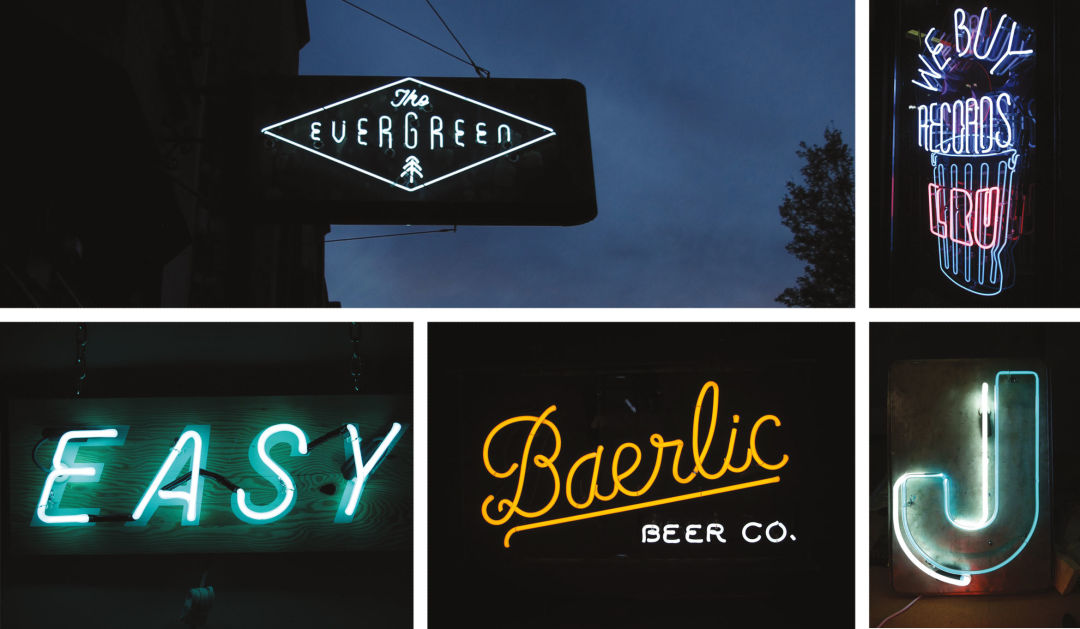Meet the Neon Artist Electrifying Portland

Clockwise from top: The Evergreen event space in Southeast; downtown’s Landfill Rescue Unit; J, Pfister’s first neon project; a custom sign for Southeast’s Baerlic Brewing; EASY, designed by Pfister for his own home.
Image: Courtesy Perry Pfister
You’ve seen Perry Pfister’s work. It’s hard to miss—and not just because it’s lit up by electrified gas. The neon artist’s creations illuminate storefronts all over town, including those of Stella Taco, Arbor Lodge Coffee, Pépé le Moko, Sweedeedee, and Tender Loving Empire. In the four short years he’s been working in neon light, Pfister, a.k.a. the Tiny Spoon, has made a vivid mark on the city’s nightscape.
It’s a right-place-right-time thing, explains the easygoing 33-year-old at his Kerns neighborhood studio: Portland is booming, which means new businesses and new signs. Meanwhile, neon is making a comeback. The craft—and with it, many practitioners—nearly flickered out in the ’90s, when LEDs became the cheaper option for lighting “channel letters” (think strip-mall signage). But in recent years, a niche market for custom, vintage-style neon has sparked a resurgence in the medium.
“It’s a way to make a bold statement,” Pfister observes. “If you’re going to say something as loud as possible, it would be in a light that you can see from miles away.”
Originally from New Orleans, Pfister moved to Portland a year after Katrina and eventually started screen-printing under the Tiny Spoon name. His bike commute would take him past the iconic neon signs of N Interstate Avenue: the Viking, the Alibi, the Palms. A longtime aficionado of graffiti art, Pfister was drawn to the way neon also uses typography and public space to put messages “on blast,” he says. “I was like, how can I do that?”
Pfister did a two-week workshop in the Bay Area, then struck out on his own. Years later, he’s still learning—but his “ignorance,” he says, is his edge. A teacher might advise him not to try some of his detailed, artistic flourishes; independent study means more mistakes, but also more creative work. “When I don’t have anybody to tell me differently,” Pfister says, “I push things a bit further.”




